Samsung Wallet vs. Google Wallet
Comparing how these two virtual payment & passport apps match up in features and functionality.
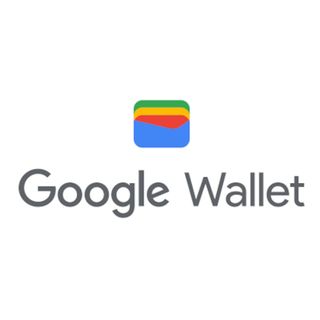
Wider global availability
Google Wallet is the rebrand of the popular Google Pay app with the same NFC payments, transit cards, loyalty cards, and other wallet-replacing tools as before. However, it also offers new features like driver's license storage and digital car keys.
For
- Available on all Android phones and Wear OS watches
- Available in more countries
- Google Pay more widely available for online payments
- Transit and parking passes
Against
- No MST
- No longer has peer-to-peer payments
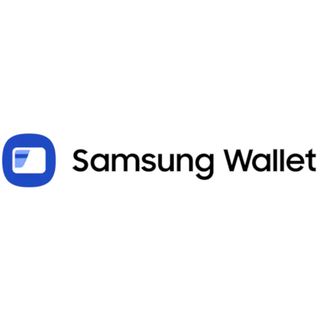
Crypto, passwords, and MST (sort of)
Samsung Pay rebranded itself as Samsung Wallet and quickly promised to add almost all of the same features as Google Wallet, with some unique perks like blockchain tracking. The main difference here is that you can only use Samsung Wallet on Samsung devices.
For
- Incorporates into Samsung phones, watches, and apps
- Blockchain Wallet
- Incorporates Samsung Pass
- Technically supports MST on older phones
Against
- Only available on Samsung phones
- No longer supports MST on newer phones
For years, Google Pay and Samsung Pay competed against one another. Then Google rebranded Google Pay to Google Wallet, only for Samsung to do the same with Samsung Wallet about a month later. Both apps now offer digital passes as well as their original payment systems; and for Samsung phone owners, you can download both. So when it comes to Google Wallet vs. Samsung Wallet, we'll break down the similarities and differences so you know which one to pick.
Google Wallet vs. Samsung Wallet: Availability
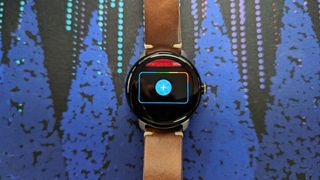
Samsung Wallet launched in mid-June, while Google Wallet arrived in mid-July. However, Google's new payment app is available in more places and on more devices.
Google Wallet is available in 60 countries and counting (listed at that link), provided you have an Android phone with NFC support. It's also available on Wear OS watches for easy tap-to-pay, including the Samsung Galaxy Watch 5 — even though its default payment app is Samsung Pay. It'll even come to new Fitbit watches.
As for Samsung Wallet, it's specifically available through the Galaxy Store, which means you'll only be able to download it on Samsung phones. It's also the default tap-to-pay option on Samsung's watches like the Galaxy Watch 4 and Galaxy Watch 5 Pro.
Initially available in just six countries, Samsung Wallet is now available in 29 countries as of January 2023, as per this Samsung press release. With this expansion, Samsung has made its Wallet far more competitive than before in the global market; but Google Wallet may still be your only option depending on where you live — making this breakdown moot.
Google Wallet vs. Samsung Wallet: Pay changes

As we'll discuss below, Google and Samsung largely added the same "wallet" features when rebranding Google Pay and Samsung Pay. So to compare the two apps, it makes more sense to focus first on how they differ for payments rather than the new ancillary tools.
The most obvious shared trait is that both Google Wallet and Samsung Wallet let you store credit cards, debit cards, bank accounts, Paypal, and other financial info for NFC tap-to-pay in physical store locations that support Google Pay or Samsung Pay now. It sounds confusing, but basically, you should consider Pay as a feature of Wallet now, rather than its own app.
Be an expert in 5 minutes
Get the latest news from Android Central, your trusted companion in the world of Android
For the most part, both services should accept the same banks and credit card companies, so you can choose either. And on a similar note, most physical stores will either accept both Google Pay and Samsung Pay or neither.
So you can safely choose whichever you prefer and get most of the same tools, assuming you own a Samsung device that supports both.
You shouldn't be surprised that Samsung Wallet shares most of its features with Google Wallet — though it has some niche extras.
Where Google Pay has the edge is with online payments. You'll often find Google Pay as a checkout option on certain storefronts, and if you use Chrome, you'll see the prompt to auto-populate payment fields with your stored Google Pay cards. Samsung Pay, on the other hand, doesn't have the same kind of reach outside of Samsung's own stores.
Google Pay offered peer-to-peer payments in certain countries, but that feature won't transfer over to Google Wallet. It'll remain as a separate Pay app in the United States and Singapore, meaning you'll need to have two separate apps downloaded.
Samsung used to have a leg up with Magnetic Secure Transmission (MST), a payment method that used your phone like the magnetic strip found on credit cards. But Samsung didn't include it on the Galaxy S22 and didn't support it on the U.S.-based Galaxy S21, essentially abandoning the feature moving forward.
Some people argued that MST's death was a good thing, but it took away one of Samsung Pay's only distinct features. Similarly, Google could've given Google Pay the edge by offering Plex bank accounts that bypassed traditional banks, but eventually abandoned the idea. Now, Google and Samsung are more focused on bringing other tools to the app besides payment-based ones.
Google Wallet vs. Samsung Wallet: Competing features
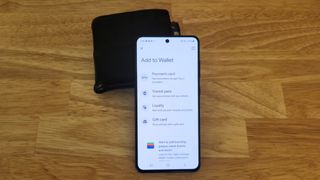
Samsung is often in step with Google when it comes to releasing new features to its phones, so you shouldn't be surprised that Samsung Wallet shares most of its features with Google Wallet — though it has some niche extras.
Both mobile giants added the following tools at launch: loyalty and membership cards, gift cards, boarding passes, digital car keys for participating brands like BMW and Hyundai, and vaccination cards.
As for future features, both Wallet apps will work to add digital IDs and driver's licenses; Google will likely prioritize American IDs first, while Samsung will start with South Korean IDs.
The Android OS itself supports stored pass data and tap-to-show functionality, so it makes sense the two apps would offer the same tools. The same applies to digital driver's licenses and IDs: The delay is less about the technology and more about states and nations accepting digital identification as valid.
That being said, Google has only managed to bring the feature to one U.S. state (Maryland), lagging behind Apple in this area. As for Samsung, it also promised to bring IDs to its app starting in 2022, but we haven't heard any news on that front since.
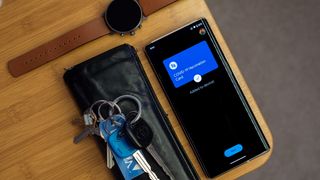
As for where they differ, Samsung Wallet incorporates Samsung Pass to store and populate your passwords after biometric authentication on your Samsung phone. Google also offers auto-password tools outside of Wallet, so you're not missing anything. Plus, there are many third-party password managers you can use.
Samsung also incorporated its "Blockchain Wallet" so you can monitor cryptocurrencies right through the Wallet, something Google doesn't offer as of yet. The supported list includes Bitcoin, Ethereum, ERC tokens, Tron (TRX), and TRC tokens. If you're someone who cares about crypto and wants to check your balances in the same place you check your bank accounts, this might appeal to you.
Lastly, Samsung Wallet has cash-back rewards that you can earn by making purchases on your phone through the app for supported merchants. That's something Google Pay continues to offer, but not Google Wallet.
As for Google-exclusive features, Google Wallet incorporates parking passes, hotel room keys, and transit passes — all features that Samsung Wallet might add in the future, but weren't mentioned in its press release.
Google Wallet vs. Samsung Wallet: Which should you use?
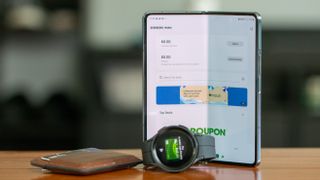
If you mainly use Samsung devices, you can make the case to use Samsung Wallet over Google Wallet. The One UI OS incorporates both apps, but Samsung Wallet works more easily on the Galaxy Store and gives you rewards for future Samsung device purchases. Given Samsung makes many of the best Android phones, many of you will fall into this category.
Otherwise, unless you're really interested in cryptocurrency or use an older Galaxy phone with MST support, Samsung Wallet doesn't have enough exclusive perks in our mind.
Using Google Wallet means your payment data will remain up to date if you ever switch from Samsung to another Android brand, and Google Pay's availability for online payments may prove just as useful as physical tap-to-pay in stores. Our guide comparing the five top payment apps (Google, Samsung, Apple, Amazon, and Meta) goes deeper in-depth in terms of these differences.
Otherwise, both Google Wallet and Samsung Wallet store the same financial and personal data, so you can't really go wrong with either from a feature storefront. But Samsung Wallet has received lots of negative reviews on the Galaxy Store as being unreliable and buggy, especially on older devices. For comparison, the Google Wallet app has its detractors but seems to be more stable — making it more tempting.

Michael is Android Central's resident expert on fitness tech and wearables, with an enthusiast's love of VR tech on the side. After years freelancing for Techradar, Wareable, Windows Central, Digital Trends, and other sites on a variety of tech topics, AC has given him the chance to really dive into the topics he's passionate about. He's also a semi-reformed Apple-to-Android user who loves D&D, Star Wars, and Lord of the Rings.
For wearables, Michael has tested dozens of smartwatches from Garmin, Fitbit, Samsung, Apple, COROS, Polar, Amazfit, and other brands, and will always focus on recommending the best product over the best brand. He's also completed marathons like NYC, SF, Marine Corps, Big Sur, and California International — though he's still trying to break that 4-hour barrier.
